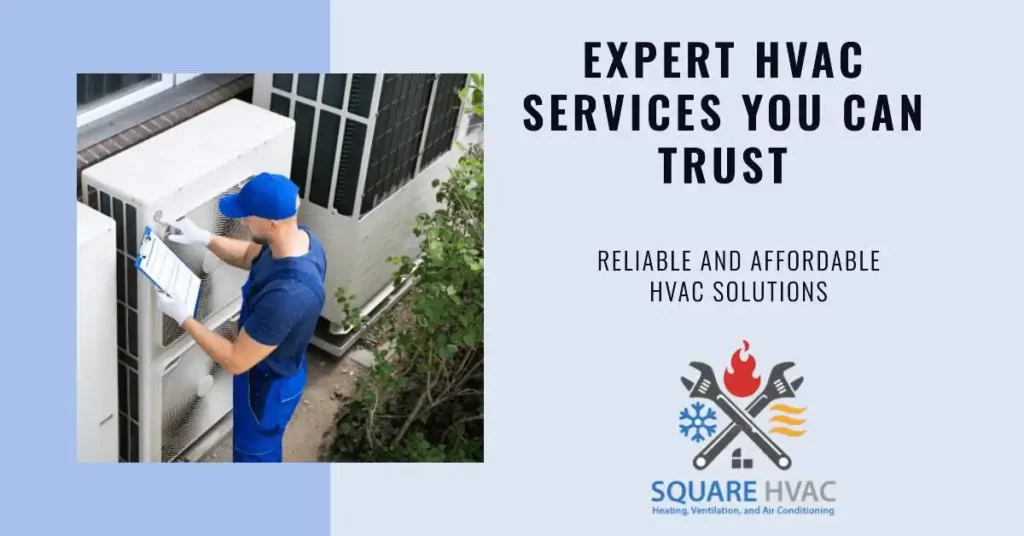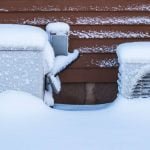HVAC systems are generally safe, but they can become dangerous if not properly maintained.
HVAC systems, short for Heating, Ventilation, and Air Conditioning, are the unsung heroes of modern living. They quietly work behind the scenes to keep our homes comfortable, ensuring we stay warm in the bitter cold of winter and cool during the sweltering heat of summer.
Yet, while we often take their reliability for granted, there’s an important question that deserves our attention: “Is HVAC dangerous?“
Are there hidden dangers in our heating and cooling systems? Could something we use every day, like our HVAC system, be a risk to our safety, health, or property?
Why Is HVAC Dangerous?: Common Risks with HVAC Systems
Electrical Hazards during Installation and Maintenance
Working with high-voltage electrical components can be risky. It’s crucial to understand these risks and how to mitigate them.
High-voltage electrical components pose dangers, including electric shock and burns.
To stay safe, always use the right safety gear, like gloves, goggles, and insulated tools. These items help protect against electrical hazards and prevent accidents.
Fire Hazards Resulting from Malfunctioning Components
HVAC systems can develop issues like faulty wiring or overheating, which can lead to fire hazards if not addressed.
- Faulty wiring and overheating are common problems that may result in fires if left unattended.
- Regular inspections are vital to detect and prevent these potential fire hazards. Early identification and timely maintenance can prevent dangerous situations from arising.
Health and Indoor Air Quality Concerns
HVAC systems can impact indoor air quality and, in turn, our health.
HVAC systems can accumulate dust, allergens, and even mold over time.
This buildup can lead to health issues such as allergies and respiratory problems.
Regular maintenance, including cleaning and filter replacement, can help maintain clean and healthy indoor air.
Carbon Monoxide and Gas Safety
Dangers of Carbon Monoxide Leaks from Heating Systems
Carbon monoxide leaks from heating systems can be life-threatening. Here’s why it’s crucial to understand and prevent them.
Carbon monoxide, a colorless, odorless gas, can leak from heating systems.
Symptoms of carbon monoxide poisoning include headache, dizziness, nausea, and even unconsciousness.
Stress the necessity of annual inspections by professionals to detect and prevent carbon monoxide leaks.
| Topic | Details |
|---|---|
| Sources and Symptoms of Carbon Monoxide Leaks | |
| Sources of CO Leaks | – Malfunctioning heating systems – Blocked vents – Damaged flues |
| Symptoms | – Headache – Fatigue – Nausea – Confusion – Flu-like symptoms (easy to overlook) |
| Importance of Carbon Monoxide Detectors | |
| Types of Detectors | – Plug-in detectors (plugged into electrical outlets) – Hardwired detectors (wired into the home’s electrical system) |
| Proper Placement Guidelines | – Install near sleeping areas – Place on every level of the home |
| Gas HVAC Systems’ Safety Concerns and Precautions | |
| Risks of Gas Leaks | – Fires – Explosions – Health hazards |
| Importance of Proper Ventilation | – Ensure the safe release of gases |
| Regular Inspections | – Check vents and flues for blockages or damage |
Read Also: is HVAC Hard to Learn? The Truth About HVAC
Warning Signs and Seeking Professional Help
It’s essential to know when to seek professional assistance for HVAC issues and recognize signs that shouldn’t be ignored.
Common Indicators of Potential HVAC Issues:
Recognizing warning signs is the first step in addressing HVAC problems.
- Common indicators include unusual odors, like burning smells or mustiness.
- Unusual sounds, such as banging, hissing, or clanking, can signal issues.
- Inconsistent heating or cooling performance may suggest underlying problems.
- Emphasize the importance of not overlooking these signs, as they can lead to more significant issues if ignored.
When to Contact a Professional Technician

Knowing when to call a professional HVAC technician is crucial for safety. Some issues, like gas leaks or refrigerant leaks, can be dangerous and need immediate professional help. Trying to fix these problems yourself can be risky and might lead to injuries or damage.
it’s best to leave complex issues to licensed experts who are trained to handle them safely. When in doubt about HVAC problems, it’s safer to call a professional technician right away.
What are the risks of being an HVAC technician?
Being an HVAC technician can be a rewarding career, but it also comes with certain risks, including:
- Physical Hazards: HVAC technicians may encounter physical hazards such as electrical shocks, burns from hot components, and injuries from handling heavy equipment and tools.
- Chemical Exposure: Exposure to refrigerants and cleaning chemicals can lead to skin irritation, respiratory issues, and other health concerns if proper safety measures are not followed.
- Environmental Risks: HVAC systems may contain asbestos or mold, which, if mishandled, can pose health risks. Additionally, improper disposal of refrigerants can harm the environment.
- Working Conditions: HVAC technicians often work in extreme weather conditions, cramped spaces, and at heights, increasing the risk of accidents and injuries.
- Exposure to Contaminants: Poorly maintained HVAC systems can accumulate dust, allergens, and pathogens, potentially affecting the technician’s health if not properly protected.
- Inadequate Training: Lack of proper training and knowledge can lead to unsafe practices, increasing the risk of accidents and errors.
Quick HVAC Safety Tips
- HVAC Systems are Safe: When properly maintained, HVAC systems are safe for homes and workplaces.
- Maintenance Matters: Regular upkeep prevents potential dangers like mold or electrical issues.
- Beware of Health Risks: Poorly maintained systems can harm indoor air quality, leading to health problems.
- Carbon Monoxide Alerts: Install carbon monoxide detectors, especially with gas furnaces.
- Electrical Safety: Ensure proper installation to avoid fire hazards.
- Know When to DIY: Some maintenance is safe for DIY, but experts are needed for inspections and repairs.
- Stay Informed: Learn about your HVAC system and its warning signs.
- Regular Inspections: Schedule professional HVAC inspections for early issue detection.
- Fire Safety: Take precautions to prevent fires near heating sources.
- Emergency Plan: Have an emergency plan in case of HVAC-related issues.
- Follow Local Codes: Understand local regulations for HVAC maintenance.
- Choose Reliable Contractors: Hire licensed, experienced HVAC contractors.
Reasons to Become an HVAC Technician
Becoming an HVAC technician offers several compelling reasons:
- Stable Career: HVAC jobs are in demand, providing job security.
- Good Earning Potential: Competitive salaries with room for growth.
- Shorter Training: Quick entry into the field with short training programs.
- Diverse Work Environments: Opportunities in residential, commercial, and industrial settings.
- Hands-On Problem Solving: Enjoy troubleshooting and tackling technical challenges.
- Variety: Perform various tasks from installation to maintenance and repairs.
- Advancement Opportunities: Options for certifications, specialization, or starting a business.
- Continual Learning: Stay updated with evolving technology and energy efficiency.
- Helping the Environment: Contribute to energy efficiency and sustainability efforts.
- Independence: Potential to work independently or freelance.
is mold in HVAC dangerous?
mold in HVAC systems can be dangerous. Mold can negatively impact indoor air quality, leading to health issues such as allergies and respiratory problems. Timely removal and prevention are crucial for maintaining a safe and healthy environment.
Is HVAC hard on your body?
HVAC work can be physically demanding, requiring strength and endurance to handle equipment and work in various conditions. Proper ergonomics and safety practices are essential to minimize strain and injuries.





